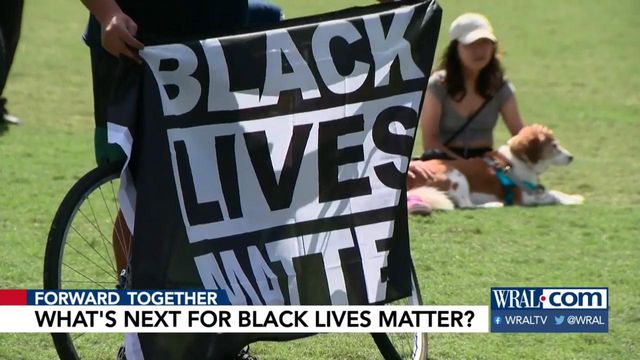What's next for the Black Lives Matter Movement?
Months removed from the height of nationwide protests, the Black Lives Matter movement has arrived at a critical point, where leaders are focusing on how they transition beyond the demonstrations and hashtags.
Posted — UpdatedAfter the deaths in 2020 of George Floyd, Breonna Taylor and Ahmaud Arbery, the world saw nearly four months of protests. Leaders said over and over again: This is a movement, not a moment.
Months removed from the height of nationwide protests, the movement has arrived at a critical point, where leaders are focusing on how they transition beyond the demonstrations and hashtags.
It’s a new year, a new presidency and a fresh start.
“Now we’re staring at a point where we’re trying to recover. Hopefully that emotion, that passion, that anger that exist in the community will now take on a mantra of rebuilding and restoring,” said Irving Joyner, a law professor at North Carolina Central University.
He said the time is now more than ever to create a strategy.
“Black Lives Matter definitely allowed us to put on the center of the conversation in public discourse the problem of mass incarceration, police brutality and the deep inequities that continue to persist,” added Dr. Johnny Hill, dean of the Divinity School at Shaw University.
Hill said the impact is huge. It is now putting young people, like Greear Webb, a student at the University of North Carolina at Chapel Hill, on the front lines of history.
“Not only can we protest and raise our voices for what’s right, but we have ideas that should be implemented that move our nation to a more better and more equitable future,” said Webb.
“It seems like we sound the alarm and then the issue goes away. We have to make things personal. And I like to say that true change takes three parts. The first is education, the second is protest, and the third is policy change,” he added.
Policy changes are already beginning locally in the fight against racial injustice. For example, Durham is passing a law to ban race-related hair discrimination in the workplace and in schools.
Among those who marched in 2020, there is a renewed hope for 2021.
“Unity does not come without accountability. So I would say that I’m cautiously optimistic,” Webb said.
Joyner and Hill also agreed a crucial measure of this movement now is to continue focusing on its goal, making sure the narrative to fight for racial justice remains.
The Black Lives Matter protests may go down as the largest movement in U.S. history.
Related Topics
• Credits
Copyright 2024 by Capitol Broadcasting Company. All rights reserved. This material may not be published, broadcast, rewritten or redistributed.






